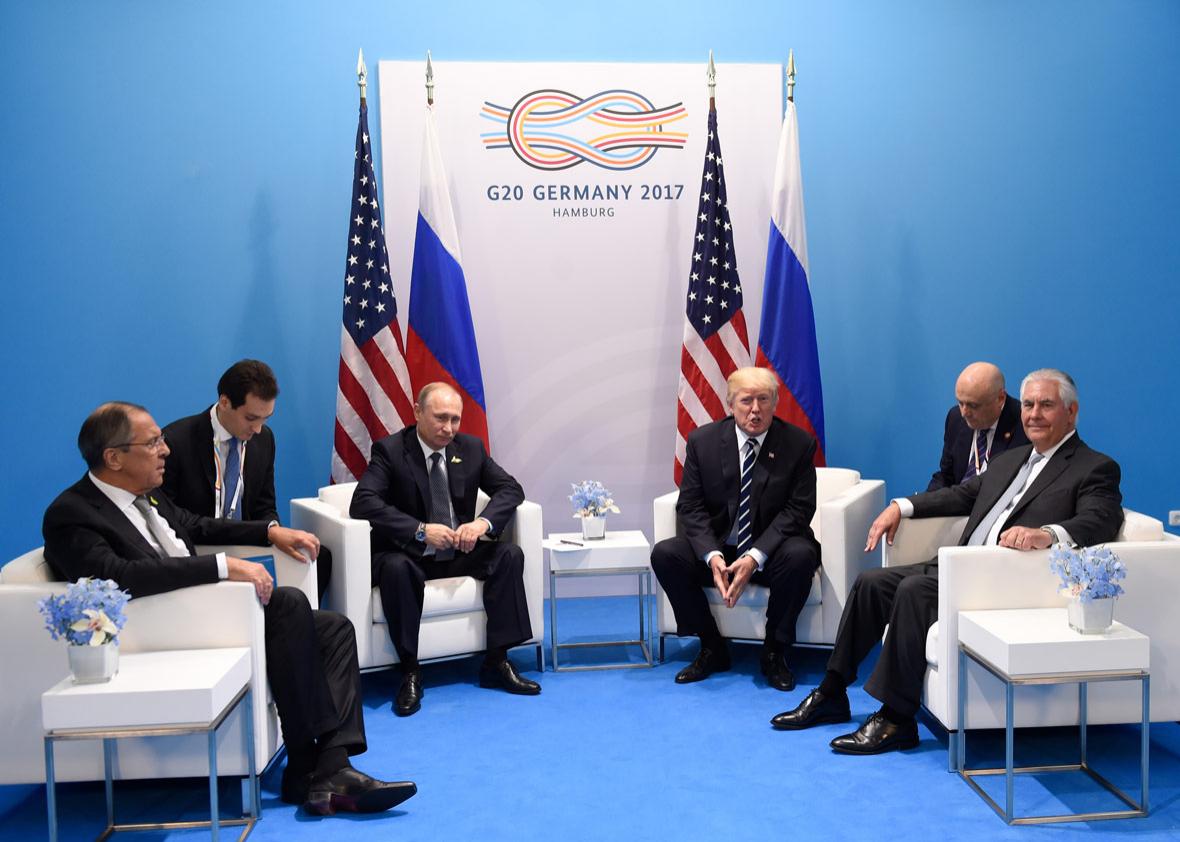By all appearances, Donald Trump isn’t too concerned about Russian government meddling in the 2016 presidential election. He has repeatedly downplayed the significance or denied the existence of that meddling, and refuses to hold Russia accountable for its actions—instead proposing and walking back a cybersecurity partnership with the perpetrator while still toying with the idea of reducing sanctions. “I strongly pressed President Putin twice about Russian meddling in our election. He vehemently denied it. I’ve already given my opinion,” said Trump on Twitter, all but reiterating his basic indifference, even as his director of national intelligence, Dan Coats, says just the opposite. “I think it’s publicly known and acknowledged and accepted that Russia definitely did try to influence the campaign,” he said during his confirmation hearing in February, affirming the point in May when he testified before the Senate Intelligence Committee.
It may not have affected the final outcome, but Russian election interference—by way of hacking and selected leaks—is a genuine assault on the institutions of the United States. It demands official recognition that such actions are intolerable. We have this response from Congress, and we have it from key members of the political establishment. We don’t have it from the president of the United States.
From any other president, this disinterest would be shocking. From Trump, it is true to form. Yes, some of this may reflect the extent to which he is potentially implicated by Russian interference. The latest revelations on that score involve his son Donald Trump Jr. as well as Paul Manafort (his then–campaign chairman) and Jared Kushner, his son-in-law. According to the New York Times, Trump’s eldest son arranged a meeting at Trump Tower between the group and a Russian lawyer with ties to the Kremlin, who had promised Trump Jr. damaging information about Hillary Clinton. If true, and the eldest Trump child has essentially confirmed it, the meeting increases the questions about possible collusion between the Trump campaign and the Russian government. Under these circumstances, it is no surprise that the president has little interest in pursuing this story or even condemning the reality of said interference.
But there’s more than simple self-interest at work. Ultimately, to care about Russian electoral interference is to want to safeguard the integrity of the democratic process and maintain trust in our system of elections. Without that trust—the belief that our votes matter—democracy can’t work. To get to the point where you care, however, you need to have an underlying concern for democracy and its institutions. You have to have a commitment to the values—among them pluralism and political liberalism—at stake. There are politicians who meet that criteria. Donald Trump is not one of them.
At no point in his time on the public stage has Trump shown an appreciation for the values of Western democracy. Just the opposite. To the extent that he cares about democratic institutions, it’s purely in relationship to his personal interests. This is most evident with the press. When reporters are solicitous toward Trump, when they publish friendly stories and affirm his prejudices, the president is effusive. When they criticize him or highlight his flaws and inconsistencies, they are “fake news.” But this dynamic extends to voting too. When, during the presidential election, it seemed he would lose, Trump claimed the race was rigged and refused to say whether he would accept the results in November. After his win, when it was clear he had lost the popular vote by a substantial margin, he cried fraud. “In addition to winning the Electoral College in a landslide, I won the popular vote if you deduct the millions of people who voted illegally,” declared Trump—baselessly—a few weeks after the election.
Russia fits this dynamic. If the president won’t denounce Russian government interference, or even acknowledge it without reservation—“Well, I think it was Russia, and I think it could have been other people in other countries. Could have been a lot of people interfered,” he said last week in Poland—it’s because he has no desire to protect American democracy if doing so might make him look bad. A different president might push that aside, sensing the larger issue at hand. For Trump, however, the only issue is its relationship to his standing. The question of our democracy—of its integrity—is irrelevant. All that matters is his ego.
Which is why the White House has a commission on voter fraud—staffed by people with dubious interest in safeguarding elections but great proficiency at voter suppression—but no similar investigation of Russian hacking. It’s why he refuses to accept his intelligence agencies’ conclusion that Russia worked to assist his campaign. It’s why Trump seemed to accept the Russian president’s denials of interference, despite all evidence to the contrary. With no commitment to democratic governance, Trump doesn’t care whether Russia is threatening the integrity of our elections. All he knows is that it doesn’t directly harm him. And that’s enough.
